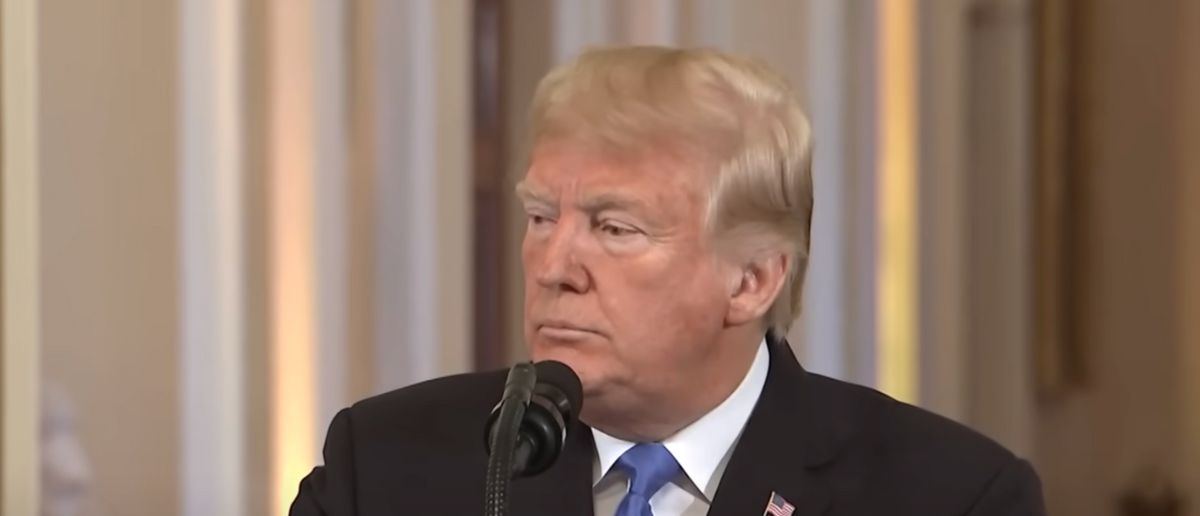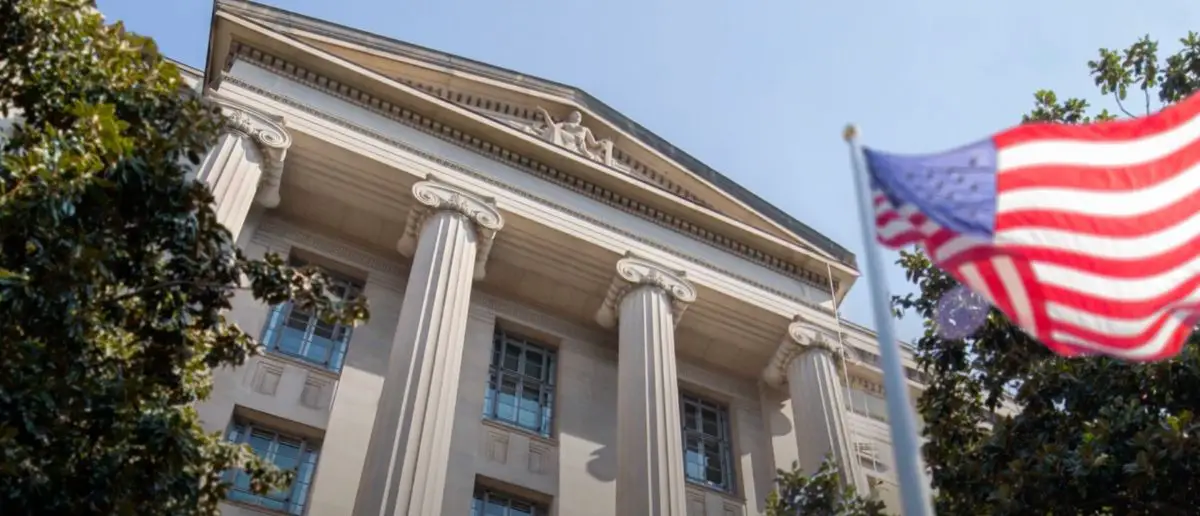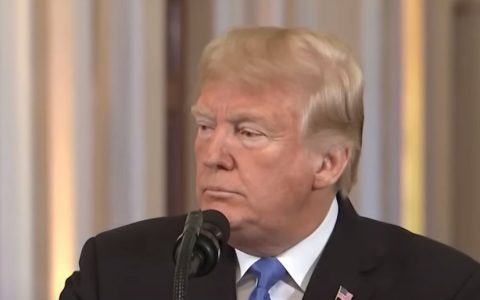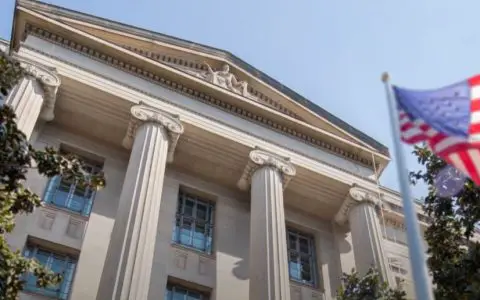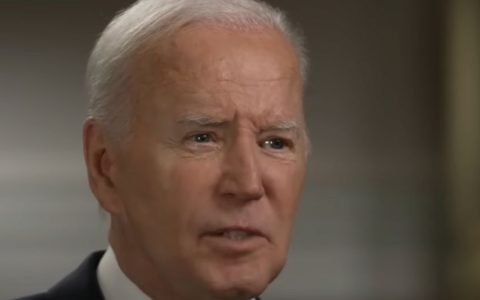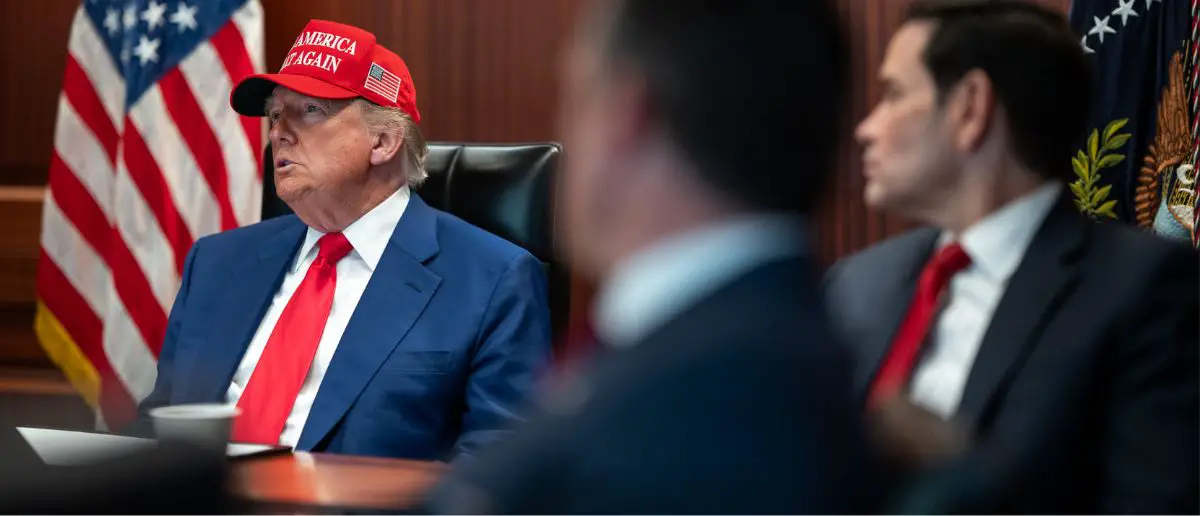
President Trump is trying to get results. But bad actors are getting in the way.
That’s why the President just went on a rare F-bomb-laced tirade on Fox News.
Trump Battles Iran and Israel’s Bad Actors to Secure Middle East Peace
President Donald Trump is fed up with the relentless warmongering from rogue elements in Iran and Israel, who he believes are sabotaging his push for peace in the Middle East. On Tuesday, during a fiery exchange with reporters on the White House lawn, Trump aired his frustration after Iran shattered a ceasefire he had announced just a day earlier, prompting Israel to retaliate. The breakdown of the truce, meant to halt decades of hostility, shows the uphill battle Trump faces against entrenched bad actors in both nations.
On Monday, Trump unveiled a hard-won ceasefire agreement, set to take effect at 1 a.m. Eastern Daylight Time, designed to pause the escalating conflict between Iran and Israel. He made it clear that both sides needed to respect the deal. “You know, when I say okay, now you have 12 hours, you don’t go out in the first hour just drop everything you have on them,” Trump said, slamming Iran’s reckless missile barrage on Israel hours after the agreement. His exasperation was palpable as he added, “So I’m not happy with them. I’m not happy with Iran either. But I’m really unhappy if Israel is going out this morning because the one rocket that didn’t land, that was shot, perhaps by mistake, that didn’t land, I’m not happy about that.”
The President’s irritation stems from a deeper reality: decades of entrenched conflict have left both nations’ leaders seemingly incapable of embracing peace. “We basically have two countries that have been fighting so long and so hard, that they don’t know what the f*ck they are doing,” Trump bluntly declared, highlighting the chaos driving the region’s instability. His no-nonsense approach reflects his determination to cut through the dysfunction and deliver results where others have failed.
The latest flare-up follows a series of dramatic moves in the region. Early Sunday morning, the United States launched a precision strike on Iran’s nuclear facilities in Fordow, Natanz, and Isfahan, deploying 14 GBU-57 Massive Ordnance Penetrators in a 37-hour operation involving seven B-2A Spirit bombers. The strikes targeted Iran’s illicit nuclear weapons program, a direct response to Tehran’s refusal to negotiate and its repeated missile attacks on Israeli cities.
The U.S. action came just ten days after Israel’s own military operation against Iran’s nuclear sites, which k*lled top Iranian military officials and escalated tensions. Iran’s defiance, coupled with Israel’s aggressive countermeasures, has frustrated Trump’s vision for de-escalation. Despite these setbacks, the President remains committed to forcing both sides to the table, leveraging America’s unmatched military and diplomatic might.
Trump’s national security team has earned praise for its handling of the crisis. Former Biden National Security Council Coordinator Brett McGurk, appearing on CNN’s Anderson Cooper 360 Monday, gave Trump and his team “extremely high marks” for their strategic approach. McGurk noted that the U.S. strike was a calculated move to set a ceiling on the escalation. “I said this crisis is now in the stage of beginning to recede,” McGurk explained. “The American strike was turn one. We were waiting for a turn two from Iran. You want to try to cabin it, put a ceiling on it there. That’s exactly what happened today.”
Iran’s response, McGurk observed, was deliberately restrained. “This turn from the Iranians, the response was not a real response. It was choreographed, telegraphed. Most of the missiles were defeated by both Qatari defenses, interestingly, and U.S. defenses,” he said. The limited nature of Iran’s counterstrike suggests Trump’s pressure is forcing Tehran to rethink its belligerence, even as hardliners within the regime resist.
The conflict’s roots trace back to June 12, when Israel launched a preemptive strike on Iran, targeting its nuclear program and k*lling key military figures. The attack raised questions about U.S. involvement, with Trump issuing a stern warning to Iran that America could intervene if necessary. By Thursday, White House Press Secretary Karoline Leavitt confirmed Trump would decide within two weeks whether to commit U.S. forces. But Trump didn’t wait long, announcing a “very successful attack” on three Iranian nuclear sites via Truth Social by Saturday evening.
Behind the scenes, a “flurry of backchannel diplomacy” orchestrated by Trump’s team paved the way for the U.S. strike, according to McGurk. He predicted Israel would maintain pressure by continuing to patrol Iranian airspace, while European allies are poised to “snap back all international sanctions” on Iran by October if negotiations stall. Trump’s multi-pronged strategy—combining military precision with diplomatic maneuvering—aims to box in Iran’s rogue elements and force compliance.
McGurk remains optimistic about the implications of Trump’s leadership. “Look, bottom line, this is about the best place we can be,” he said. “There’s a chance for diplomacy here, not only on the Iran side, but also in Gaza. Those talks are also going on backchannel. In Cairo, there’s a Hamas delegation there. Try to get that ceasefire in place, and you can come out of this in a place that is far better than we would have anticipated 10 nights ago.”
Yet, Iran’s defiance persists. Just two days after Trump’s announcement of the U.S. strike, Iran launched an attack on the Al Udeid U.S. Air Base in Qatar. Trump acknowledged Iran’s advance warning, which prevented U.S. casualties, and expressed gratitude for the gesture. However, Iran’s Foreign Minister Abbas Araghchi doubled down on X, vowing military operations would continue “until the very last minute, at 4 a.m.” True to form, sirens blared across Israel shortly after the deadline, with the Israel Defense Forces reporting a missile launch from Iran.
Trump’s ceasefire, intended to reset the region’s dynamics, was meant to see Iran halt hostilities first, with Israel following “upon the 12th hour.” The swift collapse of the truce clearly demonstrates the challenge of dealing with bad actors in both regimes who thrive on perpetual conflict. Trump’s critics may seize on the setback, but his supporters see a leader willing to confront chaos head-on, refusing to let entrenched interests derail his vision.
The President’s approach blends strength with pragmatism. By striking Iran’s nuclear sites, he sent a clear message that the U.S. will not tolerate Tehran’s pursuit of weapons of mass destruction. At the same time, his push for backchannel diplomacy and ceasefires shows a commitment to avoiding all-out war. Trump’s frustration with both Iran and Israel stems from his belief that their leaders are squandering a historic opportunity for peace.
His national security team, backed by allies like Qatar and European partners, is working tirelessly to keep negotiations alive. He’s made it clear he won’t let Iran’s missile volleys or Israel’s retaliatory strikes derail his mission. With diplomacy in Cairo and sanctions looming, Trump is playing a high-stakes game to force both nations to choose stability over chaos, proving once again why he just might be the leader the region needs.
Stay tuned to the DC Daily Journal.

